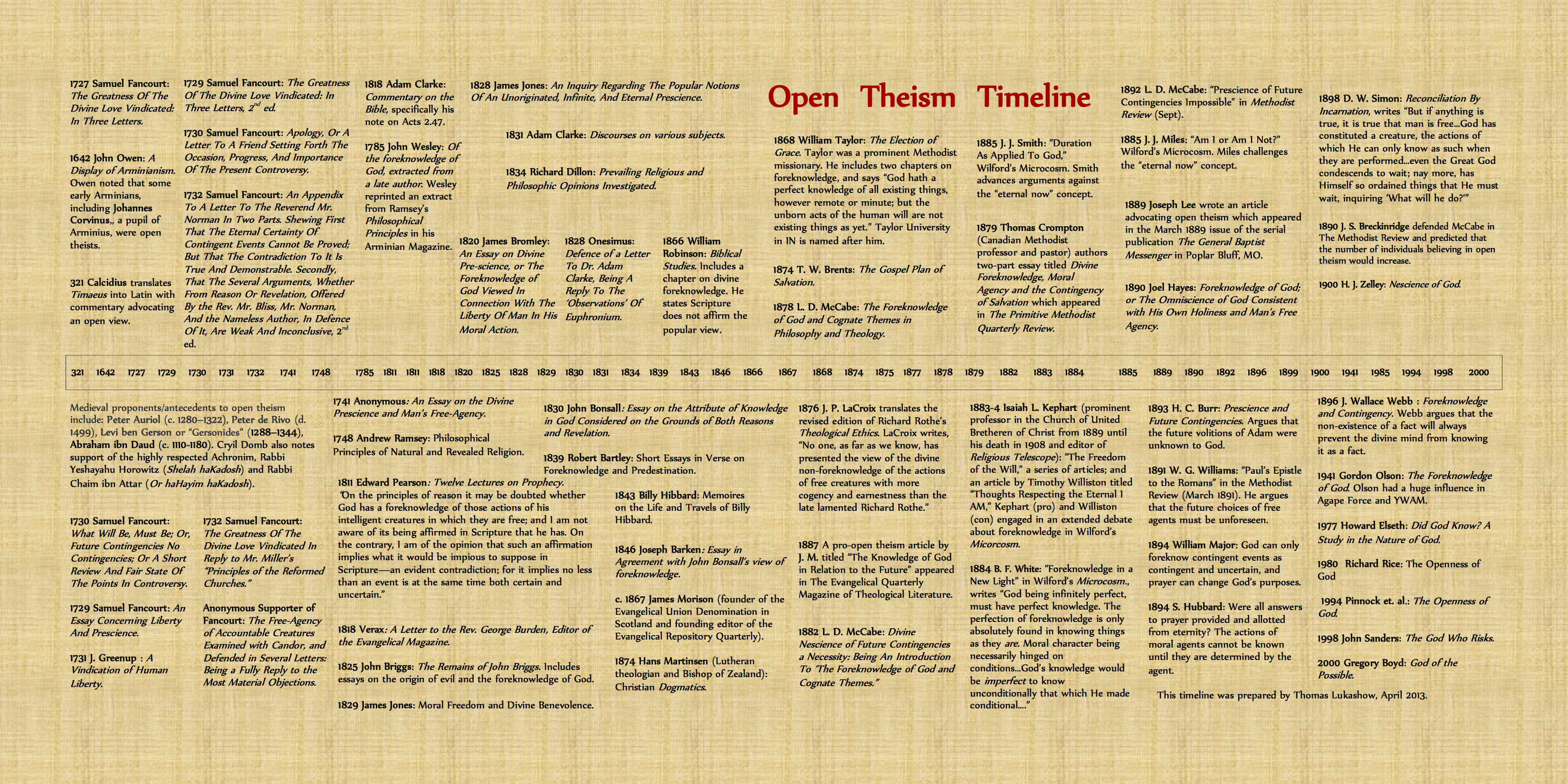Open theism is a model of God emphasizing divine love and responsiveness to creatures. The term “open” is used in two important ways: (1) God is open to what creatures do and (2) the future is open in that there is more than one possible future. What we call “the” future is not an already determined blueprint of what will happen—it is not set in stone. Rather, it is like a create your own story book.
It resonates with the spirituality of many Christians throughout the history of the church especially when it comes to prayer. Many Christians feel that our prayers or lack of them can make a difference as to what God does. It also addresses questions about how we should understand God’s role in suffering and evil in our lives.
The Key Ideas of Openness Theology
“There is no such thing as logically unqualified omniscience. We all place restrictions on divine possibilities at some point.”
Keith Ward
The name open theism was coined in the 1990’s by a group of theologians and philosophers though the view actually existed prior to the time of Jesus and there are Jewish and Islamic varieties as well. Support for the view utilizes reasons from sources such as the Bible, theology, philosophy, and life experiences. Though proponents believe a strong case for open theism can be made, they do not claim that it is the only rational position that Christians can affirm. Information on support for the position and who has affirmed it in history is available in the articles in this section.
Open Theism Throughout History
View the complete Open Theism timeline on The Open View, courtesy of Tom Lukashow.



